More on NASCAR Cup Series
FOX Sports Faces Massive Fan Backlash as Latest NASCAR Graphics Get Delayed
After disappointing FOX Sports coverages, fans now have more reason to bash the media giant with the latest news of delay
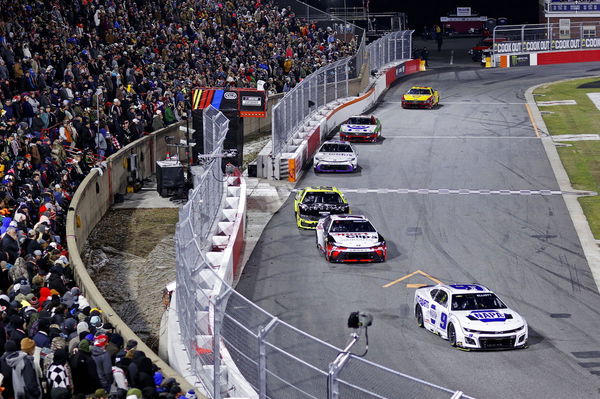
Rick Hendrick’s ‘Struggling’ Cup Driver Eyes Revival as NASCAR Eases Championship Format
Amidst the build-up for the 2026 season, optimism is high for Rick Hendrick's driver who is recovering from a season of stress
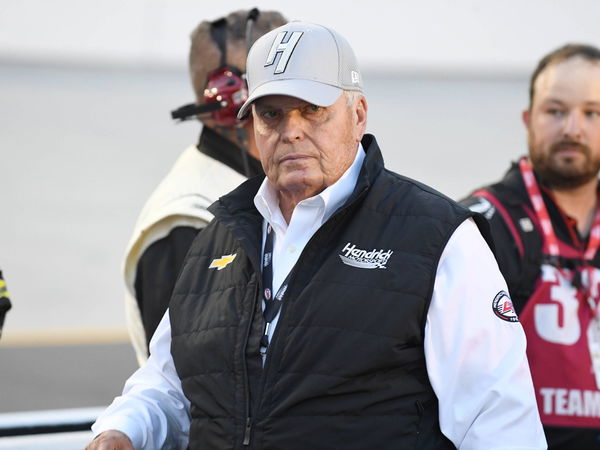
Michael Jordan’s Cup Star Lifts the Veil on the Quiet Motivator That Held 23XI Together Through Legal Chaos
After winning a lengthy legal fight, Michael Jordan's team is heralding a revamped spirit ahead of the new NASCAR season
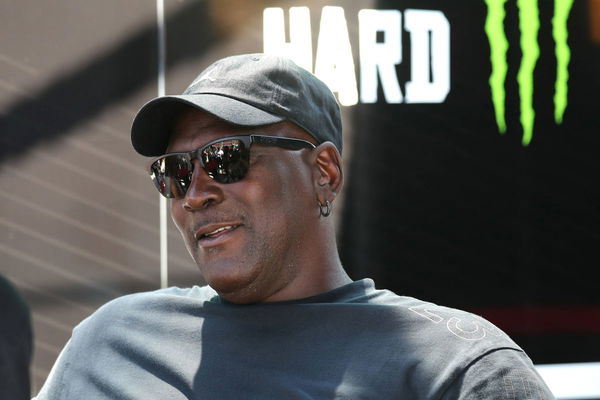
Connor Zilisch Quietly Deflates His Own F1 Dream With Brutal Admission
Amidst his upcoming NASCAR season, Connor Zilisch clarifies where his focus is given F1's complicated entry
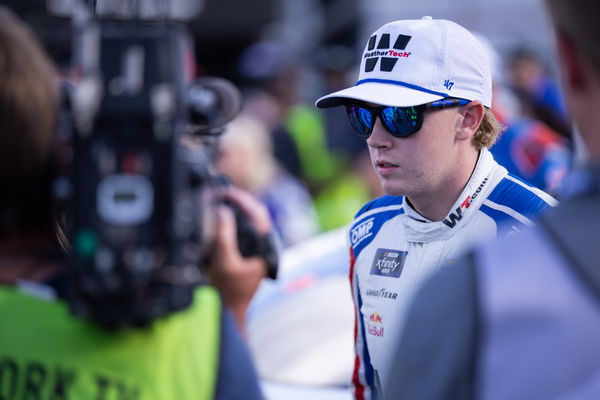
“I Always Called Him Gramps”: Kevin Harvick Breaks Silence as His Closest NASCAR Ally Passes Away
Kevin Harvick and his co-hosts recount the tales of their fun-loving truck hauler who lost his life in 2025 after retiring from NASCAR.
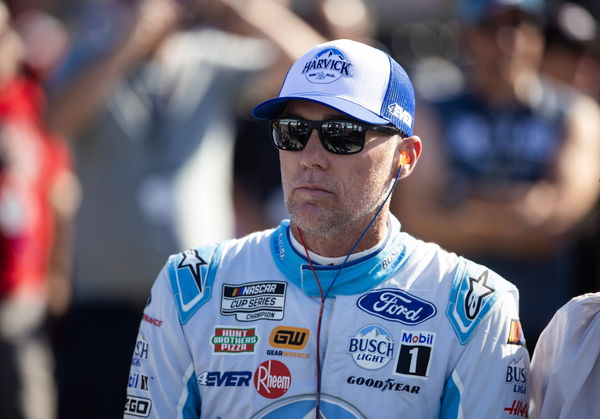
Kevin Harvick Sets Aside Past Rivalries With Greg Biffle to Pay a Heartwarming Tribute After Tragic Crash
Kevin Harvick and Greg Biffle shared an iconic rivalry, years later, however, Harvick only remembers Biffle for the person he was.
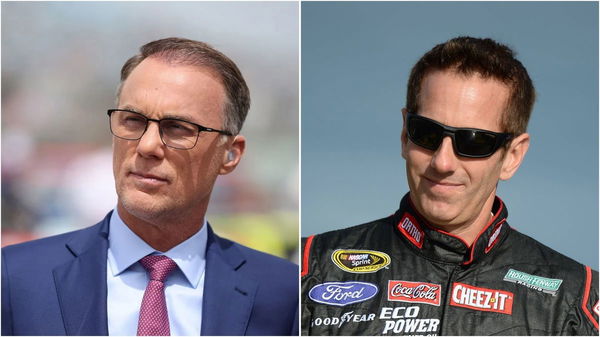
Fact Check: Is NASCAR Moving Its Pre-Season Clash to Daytona Amidst Snow Storm Chaos at Bowman Gray?
A rumor has recently spread on social media regarding the Clash not being held at the Bowman Gray Stadium. Here's a quick fact check.
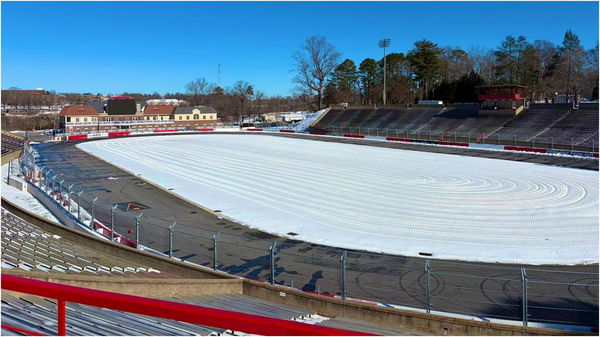
Dodge’s Long-Dormant NASCAR Cup Hopes Resurface as Official Pushes for Unthinkable 2027 Daytona 500 Return
After years away from the Cup Series, Dodge’s NASCAR future may be changing as insiders push for a dramatic Daytona 500 comeback in 2027.
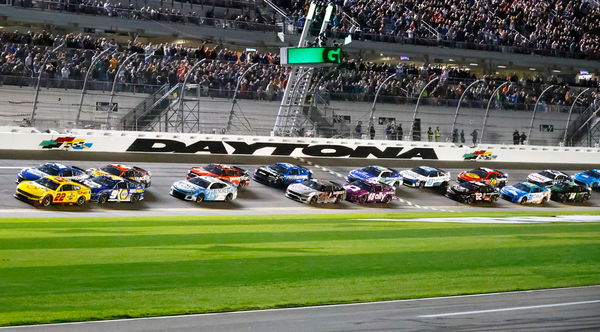
Jimmie Johnson’s Cup Driver Flags Serious Concerns as NASCAR Braces for an Icy Bowman Gray Night
As freezing weather threatens Bowman Gray, Jimmie Johnson’s Cup driver warns of risks, and NASCAR faces a tough night at the Clash.
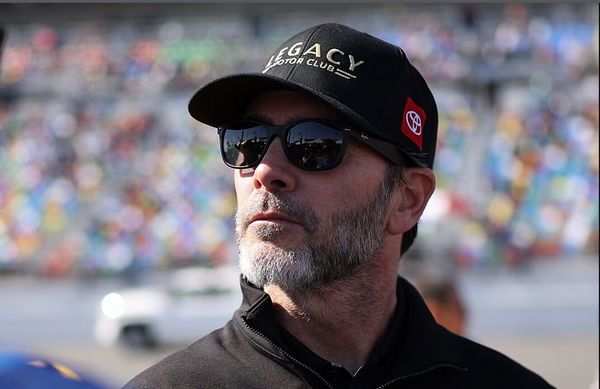
Corey Lajoie Reveals the Brad Keselowski Incident That Secretly Revived RFK’s Long Lost Daytona Plan
Corey LaJoie shares how Brad Keselowski’s injury revived RFK’s Daytona 500 plan and gave him a shot in the No. 99.
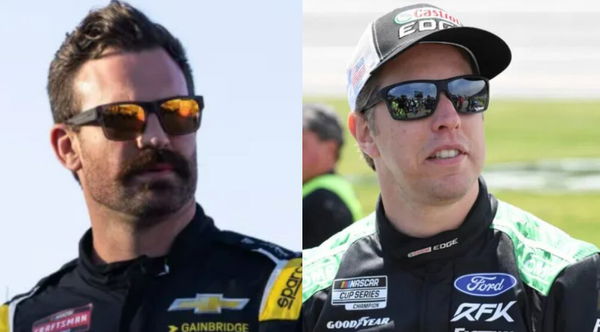
Kurt Busch Reveals the Emotional Cost of NASCAR Immortality as He Embraces the Career Built on Legends
Kurt Busch revisits the turning points, team influences, and personal growth that defined his NASCAR journey.
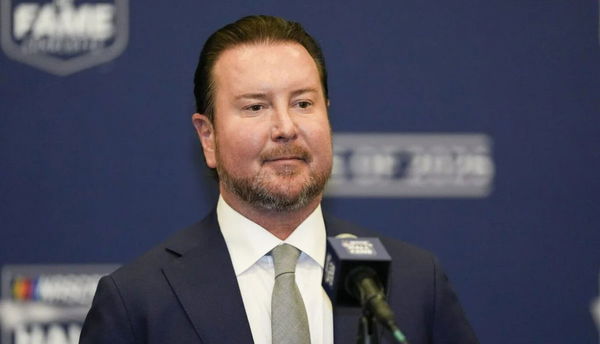
Christopher Bell Confirms Buried Hatchet With HMS Icon as He Throws Shade at NASCAR’s Star Power
Christopher Bell stay honest about his rivalry with fellow NASCAR driver while talking about the effect of the new championship format.
About NASCAR Cup Series
NASCAR Cup Series: Origin, Teams and More
What is the NASCAR Cup Series?
NASCAR (National Association for Stock Car Auto Racing) is the authorizing body for stock-vehicle racing in North America. It was established in 1948 in Daytona Beach, Florida. Currently, the organization fields four types of tracks: Intermediate tracks, Superspeedways, Short Tracks and Road Courses.

USA Today via Reuters
Feb 19, 2024; Daytona Beach, Florida, USA; NASCAR Cup Series drivers Corey LaJoie (7), Kyle Busch (8) and A.J. Allmendinger (16) race three wide for the lead during the Daytona 500 at Daytona International Speedway. Mandatory Credit: Mark J. Rebilas-USA TODAY Sports
NASCAR Cup Series Origin
The first-ever NASCAR race was held at Charlotte Fairgrounds Speedway on June 19, 1949 and Christian David "Jim" Roper was the victor after racer Glen Dunaway was disqualified for making illegal adjustments to his car.
On this day in 1949, NASCAR held its first-ever "Strictly Stock" race.
Thirty-three drivers raced at Charlotte Speedway, six of which were future NASCAR Hall of Famers. Jim Roper was declared the winner following a disqualification to Glenn Dunaway. pic.twitter.com/yBUDRcRxVo
”” NASCAR (@NASCAR) June 19, 2023
Why is it named Cup Series?
The NASCAR Cup Series is the pinnacle of the racing arrangement in the NASCAR classification. The arrangement started in 1949 and was called the Strictly Stock Division. The series was subsequently known as the Grand National Division from 1950 to 1970.
Then, in 1971, it started renting its naming rights to the R. J. Reynolds Tobacco Company and was alluded to as the NASCAR Winston Cup Series till 2003. From the next year onwards, the series came to be known as the NASCAR Nextel Cup Series till 2007 after a partnership with Nextel.
Sprint obtained Nextel in 2005 and 2008 saw the arrangement being renamed as the NASCAR Sprint Cup Series. Sprint remained the sponsor of the NASCAR Cup from 2008 to 2016. It was reported in December 2016 that Monster Energy would be the sponsor; therefore, the arrangement was renamed the Monster Energy NASCAR Cup Series from 2017 to 2019.
However, after decades of name changes, in 2017, the organization finally decided to shed off its old image and simply be named as the NASCAR Cup Series, with series sponsors being called 'Premier Partners'.
What is the format of the Cup Series?
The NASCAR points system has been a complicated affair to say the least. Over the years, the organization has tried several iterations, namely the Latford system, the Chase and the current elimination playoffs format among others, to discern one that would be fair to each driver.
While the earlier system saw drivers being awarded points on the basis of prize money in a particular race, in 1972 a new format was introduced. This time the points were awarded on the basis of laps completed. However, even that came with its own flaws and just two years later, in 1974, the organization introduced point calculation based on a mathematical formula. However, given the complexity of the equation, Bill France Jr, the former CEO of NASCAR decided to step in and call upon his close friend Bob Latford, to come up with an efficient way, which later came to be known as Boot Hill Format or the Latford Model.
With equal points awarded in all races, as New York Times aptly put it: "Mr. Latford set up his points scale to reward consistency rather than flashes of brilliance, and drivers seem to like it that way."
This system was perhaps the longest-running one during that time, being replaced in 2003, by The Chase format. Currently, the NASCAR Cup Series operates on the Playoff Format. The schedule consists of 31 oval races, 4 road course races, one street track race, and 4 non-championship races to be held on ovals. This also includes 16 playoff races, with four elimination rounds, namely, Round of 16, Round of 12, Round of 4 and Championship 4.
NASCAR Cup Series Teams
As of 2024, the NASCAR Cup Series has 16 full-time teams participating and three manufacturers, namely Toyota, Chevrolet and Ford. As for the team with the most number of victories and championship, Hendrick Motorsports has has an undebatable upper hand, with 305 Cup Series wins and 14 drivers championships.
NASCAR Cup Series Venue
The first championship race was reportedly held at Martinsville Speedway, a half-mile oval, on October 16, 1949. Currently, the final race of a Cup season is held at the Phoenix Raceway, which is a one-mile, low-banked tri-oval race track located in Avondale, Arizona, near Phoenix.
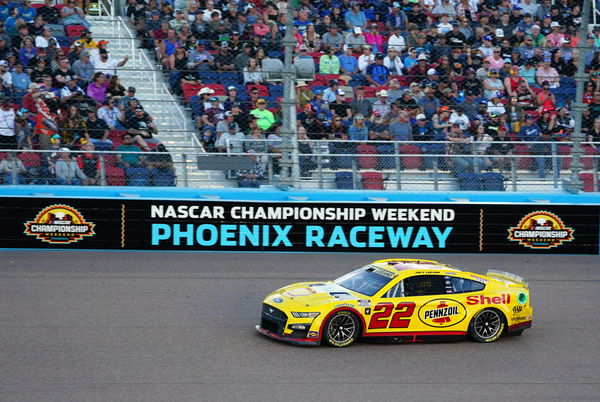
USA Today via Reuters
Nov 6, 2022; Avondale, Arizona, USA; NASCAR Cup Series driver Joey Logano (22) races in the final laps of the Cup championship at Phoenix Raceway. Mandatory Credit: John David Mercer-USA TODAY Sports
NASCAR Cup Series Championship
The NASCAR Cup Series hosts three different championship under one name: The Driver's Championship, the Owner's Championship and the Manufacturer's Championship. The driver's championship as the name suggests is the award given to the driver that has emerged as the winner at the end of a season. On the other hand, the Owner's Championship aims to reward the team at the top of the points standings. The driver with the most championship wins are Richard Petty, Dale Earnhardt and Jimmie Johnson. Additionally, Rick Hendrick-owned Hendrick Motorsports has won a record-breaking 14 championships till date.
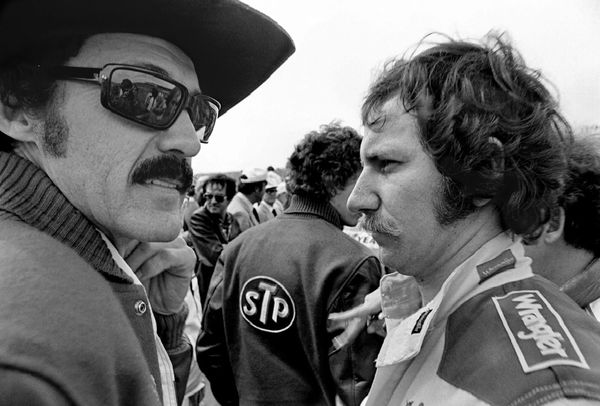
On a similar note, the Manufacturer's Championship sees Original Equipment Manufacturers(OEMs) being awarded a championship based on how races their cars managed to dominate and the points accumulated. In this regard, US-based manufacturer Chevrolet has racked up the most Cup Series wins at 42, followed by Ford at 17, and Toyota at 3.
NASCAR Cup Series Track Types
As mentioned earlier, the NASCAR Cup series organizes its races on four different types of tracks, namely, Intermediate tracks, Superspeedways, Short Tracks and Road Courses.
When it comes to Intermediate tracks, it simply means "any track greater than one mile in length, with the exception of both Daytona and Talladega" according to the official NASCAR website and currently the Cup Series drivers compete on the following Intermediate tracks/Speedways :
- Atlanta Motor Speedway (1.540-mile, Quad-Oval)
- Charlotte Motor Speedway (1.500-mile Quad-Oval, including a 2.280 miles Road Course)
- Darlington Raceway (1.366-mile, Egg-Shaped Oval)
- Dover Motor Speedway (1.000-mile, Concrete Oval)
- Homestead-Miami Speedway (1.500-mile, Oval)
- Kansas Speedway (1.500-mile, Tri-Oval)
- Las Vegas Motor Speedway (1.500-mile, Tri-Oval)
- Michigan International Speedway (2.000-mile, D-Shaped Oval)
- Nashville Superspeedway (1.333-mile, Tri-Oval)
- New Hampshire Motor Speedway (1.058-mile, Paperclip Oval)
- Phoenix Raceway (1.000-mile, Dogleg Oval)
- Texas Motor Speedway (1.500-mile, Quad-Oval)
- World Wide Technology Raceway (1.250-mile, Egg-Shaped Oval)
On the other hand, Superspeedways ae oval road courses of two miles or longer. Currently, the NASCAR Cup Series has the following Superspeedways:
- Auto Club Speedway (2.000-mile, D-Shaped Oval; Currently not in use)
- Chicagoland Speedway (1.500-mile, D-Shaped Oval; Currently not in use)
- Daytona International Speedway (2.500-mile, Tri-Oval)
- Kentucky Speedway (1.500-mile, D-Shaped Oval)
- Pocono Raceway (2.500-mile, Triangular Oval)
- Talladega Superspeedway (2.660-mile, Tri-Oval)
The short tracks (less than 1 mile in length) that are part of NASCAR are:
- Bristol Motor Speedway (0.533-mile, Oval)
- Eldora Speedway (0.500-mile, Oval; Currently not in use)
- Iowa Speedway (0.875-mile, Oval)
- Knoxville Raceway (0.500-mile, Oval
- Los Angeles Memorial Coliseum)
- Lucas Oil Indianapolis Raceway Park (0.686-mile, Oval)
- Martinsville Speedway (0.526-mile, Paperclip Oval)
- Milwaukee Mile Speedway (1.015-mile, Oval)
- North Wilkesboro Speedway (0.625-mile, Oval)
- Richmond Raceway (0.750-mile, D-shaped Oval)
As for Road Courses, NASCAR makes use of the following race tracks:
- Canadian Tire Motorsport Park (2.459-mile, Currently not in use)
- Chicago Street Race (2.14 miles)
- Circuit of the Americas (3.426-mile)
- DAYTONA Road Course (4.170-mile, Currently not in use)
- Mid-Ohio Sports Car Course (2.400-mile, Currently not in use)
- Portland International Raceway (1.967-mile, Currently not in use)
- Road America(4.048-mile, Currently not in use)
- Sebring Raceway (3.741 mi, Currently not in use)
- Sonoma Raceway (1.99-mile)
- Watkins Glen International (2.45-mile)
NASCAR Cup Series Crown Jewel Races
While NASCAR has several racetracks that it competes on, there are a couple venues that are held in high regards. Currently there are four such venues/races, namely the Daytona 500 held at the Daytona International Speedway, the Coca-Cola 500 held at the Charlotte Motor Speedway , the Brickyard 400/Verizon 200 at the Indianapolis Motor Speedway and the Southern 500 at the Darlington Raceway.
Till date, Hendrick Motorsports vice chairman and retired NASCAR driver Jeff Gordon has the most number of Crown Jewel race wins (21), followed by Legacy Motor Club team owner Jimmie Johnson (14) and retired NASCAR driver Bobby Allison (13).
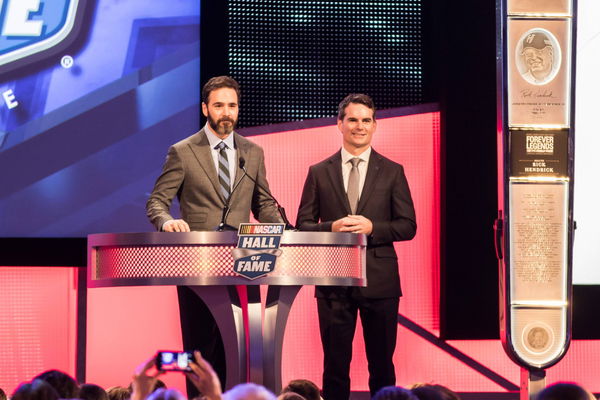
Imago
January 20, 2017 - Charlotte, North Carolina, USA - Jimmy Johnson and Jeff Gordon introduce Rick Hendrick at the NASCAR Motorsport USA Hall of Fame Induction Ceremony on Friday, January 20, 2017, in Charlotte, N.C. Rick Hendrick was inducted into the Hall of Fame with Richard Childress, Mark Martin, Raymond Parks, and Benny Parsons. 2017 NASCAR Hall of Fame Induction Ceremony - ZUMAw123 20170120_zap_w123_024
NASCAR Cup Series Cars
NASCAR is an ever-evolving sport and till date, there have been several iterations of the cars used during races. If we go back to the very inception of the sport, the first kind of vehicle that was used used to be called Generation - 1 (1948-1966), followed by Generation - 2 (1967-1980) and Generation - 3 (1981-1991). Later the Generation - 4 (1992 to 2007) was introduced , and then Generation - 5 (2007 -2012) and Generation - 6 (2013-2021) came into play. And currently, NASCAR features the Generation - 7 car that is also known as the Next-Gen.
Anothe notable model was the Generation - 5. Dubbed as the "Car of Tomorrow", this model featured flaunted prominent front splitters under the bumpers and larger rear wings. Apart from that, according to NASCAR, the car also had "significant safety advancements and a return to symmetrical bodies".
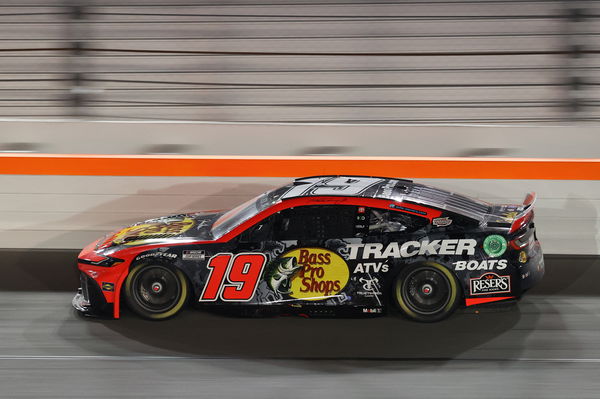
USA Today via Reuters
Feb 15, 2024; Daytona Beach, Florida, USA; NASCAR Cup Series driver Martin Truex Jr. (19) during the Bluegreen Vacations Duel 1 at Daytona International Speedway. Mandatory Credit: Peter Casey-USA TODAY Sports
NASCAR Cup Series debut at the Street Course
The NASCAR Cup Series has come a long way since its initial days. The organization has always been open to developments and one of the most exciting ones came in 2023,when the tourney made its Street Course debut at Chicago.
In a bid to turn make the schedule even more exciting, NASCAR officials were reportedly in talks with Chicago authorities for a number of years, with one attempt of a Chicago street race even dating back to the 1980s. However, owing to political pressure, that plan failed to materialize. Now, fast forward to four decades later and authorities were finally geared up to host an exciting, first-of-its-kind race in downtown Chicago.

USA Today via Reuters
Jul 2, 2023; Chicago, Illinois, USA; A general view as cars race along Grant Park during the Grant Park 220 of the Chicago Street Race viewed from the NEMA Chicago buliding. Mandatory Credit: Jon Durr-USA TODAY Sports
Designed by race simulation video game developer iRacing, the race aimed to showcase the city's major landmarks such as the Buckingham Fountain, the Grant Park and the Soldier Field Stadium, among others.
The first iteration of the race came in July of 2023, with New Zealand born driver Shane van Gisbergen clinching victory in his first-ever NASCAR race. If that's not iconic, what is?

| Full Name | NASCAR Cup Series |
| Place of Origin | Charlotte Fairgrounds Speedway |
| Year of Origin | 1949 |
| First Race | NASCAR "Strictly Stock" Race, Charlotte Fairgrounds Speedway |
| Last Race | NASCAR Cup Series Spring Race at Martinsville Speedway, 2024 |
| Crown Jewel Race | Daytona 500, Coca Cola 600, Brickyard 400/ Verizon 200, Southern 500 |
| Drivers with the most Championships | Richard Petty (7), Dale Earnhardt (7) and Jimmie Johnson(7) |
| Team with the most Championships | Hendrick Motorsports (14) |
| First Champion | Red Byron |
| Defending Champion | Ryan Blaney (2023) |
| Defending Team | Team Penske |